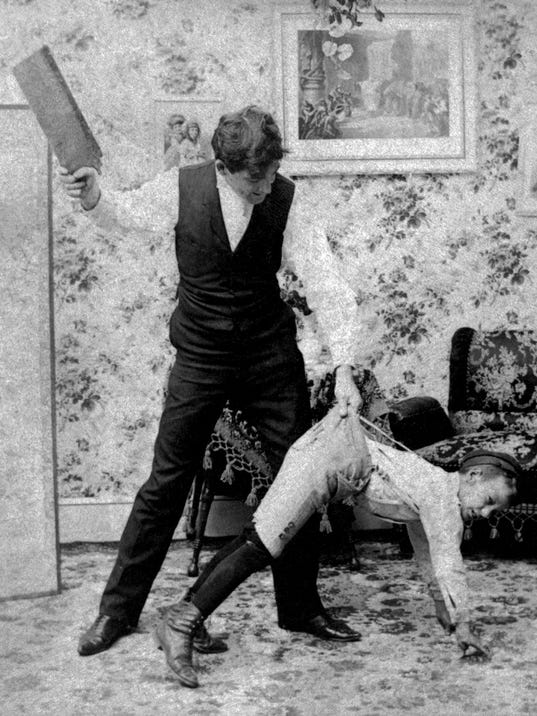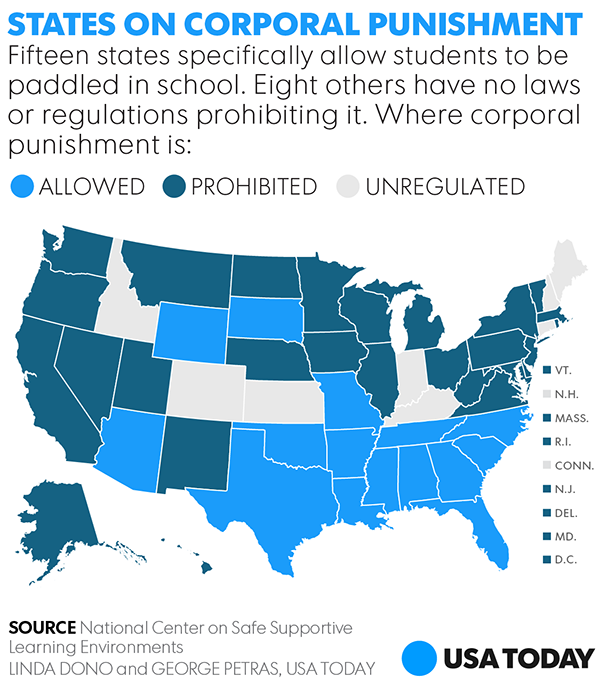 THREE RIVERS, Texas — As part of a new policy that the Three Rivers Independent School District board approved Tuesday, the paddle, likely to be wood, will be used to administer corporal punishment when a student misbehaves at school.
THREE RIVERS, Texas — As part of a new policy that the Three Rivers Independent School District board approved Tuesday, the paddle, likely to be wood, will be used to administer corporal punishment when a student misbehaves at school.
Corporal punishment is defined as the deliberate infliction of physical pain by hitting, paddling, spanking, slapping, or any other physical force used as a means of discipline.
Trustees voted 6-0 on the motion with one member absent. The policy states only a campus’ behavior coordinator or principal can administer the disciplinary measure.
Students in the two-school district about halfway between San Antonio and Corpus Christi whose parents have provided written and verbal consent will receive one paddling for an infraction when they misbehave at school.
Upon registering children for the upcoming school year, parents will be able to decide whether to opt in or out.
Texas is among 15 states that specifically allow schools' use of corporal punishment; 8 other states have no laws or regulations against it, according to the National Center on Safe Supportive Learning Environments, part of the U.S. Department of Education.
 In November 2016, the education secretary at the time, John B. King Jr., sent a letter to state leaders urging them to end the use of corporal punishment in schools, saying the practice is linked to harmful short-term and long-term outcomes for students.
In November 2016, the education secretary at the time, John B. King Jr., sent a letter to state leaders urging them to end the use of corporal punishment in schools, saying the practice is linked to harmful short-term and long-term outcomes for students.In the short term, students who are administered physical punishment for their actions at school show an increase in aggressive and defiant behavior, according to King's letter. In the long term, students who are administered corporal punishment in school are more likely to later grapple with substance abuse and mental health issues, including depression, personality disorders and post-traumatic stress, according to the letter.
Three Rivers Elementary School’s campus behavior coordinator, Andrew Amaro, a Three Rivers native, hopes the new disciplinary measure will have a more immediate effect on students than in-school suspension or detention. Amaro recalls being disciplined with a paddle during his time as a student.
“I believe it worked,” Amaro said. “It was an immediate response for me. I knew that if I got in trouble with a teacher and I was disrespectful, whatever the infraction was, I knew I was going to get a swat by the principal.”
Students will be paddled for minor infractions, such as being disobedient to teachers or not following rules in the classroom, Amaro said.
Three Rivers ISD CP Policy by Anonymous pZCDknqv6 on Scribd
Edited USA Today
You can also watch the video by clicking on the Play Button
